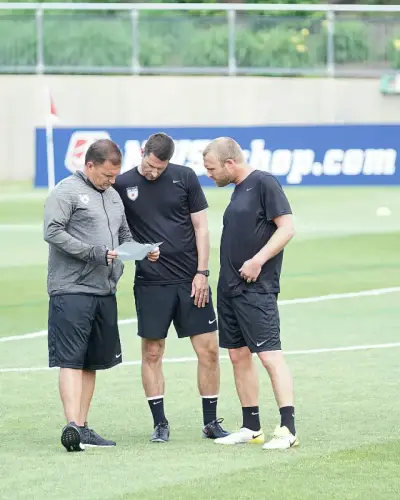Football Coaches in Germany: Career Insights and Compensation Overview
Football in Germany is more than just a sport—it’s a deeply rooted cultural phenomenon. At the heart of this football culture are the coaches, who not only lead their teams to success but also serve as mentors, educators, and role models. This article provides an in-depth look at the profession of football coaching in Germany, including salary structures, required qualifications, daily challenges, and career progression.
Salary Structures Across Different Leagues
The income of football coaches in Germany varies significantly depending on the league they work in:
Bundesliga Coaches
- Top Salaries: The best coaches can earn several million euros annually, depending on their team’s performance and personal reputation.
- Elite Earnings: At top clubs like Bayern Munich and Borussia Dortmund, annual salaries range between €5 million and €10 million.
2nd Bundesliga and 3rd League
- Average Salaries: Coaches in these leagues earn anywhere between €50,000 and several hundred thousand euros per year, depending on the club’s budget and stature.
Regional League (Regionalliga)
- Compensation: Often modest; some coaches receive only minimal pay or work on a semi-professional or voluntary basis.
Oberliga and Amateur Leagues
- Earnings: Coaches in lower divisions typically receive small stipends or symbolic compensation. Many work voluntarily out of passion for the sport and community.
Coaching in Youth Football: A Crucial Role
Youth coaches are fundamental to the development of football talent in Germany:
Youth Coaches at Professional Clubs
- Salaries: Range between €30,000 and €70,000 per year, depending on the club’s prestige and the coach’s track record.
Youth Coaches at Lower-League & Amateur Clubs
- Compensation: Generally lower than in professional clubs.
- Passion-Driven: Many youth coaches work out of love for the game, with little financial incentive.
- Expense Allowances: Some receive small monthly stipends or reimbursements for expenses.
Volunteer Youth Coaches
- No Fixed Salary: Often unpaid but receive non-monetary benefits such as free training courses, equipment, or club memberships.
- Commitment: Many invest significant time and energy in developing young players while balancing other full-time jobs.
Freelance Youth Coaches
- Variable Income: Earnings depend on the number of training sessions, camps, or workshops they offer.
- Flexibility: These coaches have the freedom to design their own training programs and schedules.
Qualifications and Training
To succeed as a football coach in Germany, specific certifications and continuous education are essential:
- DFB Coaching Licenses: Ranging from B-License for amateur clubs to UEFA Pro License for coaching at the highest levels.
- Training Curriculum: Covers tactical knowledge, technical skills, sports psychology, physiology, and injury prevention.
Coaches must continuously update their knowledge through refresher courses, networking events, and exposure to modern football trends.
Daily Life and Challenges of a Football Coach
The coaching profession is demanding and requires high levels of commitment and adaptability.
Workload & Schedule
- Coaches work long hours, often including evenings and weekends.
- Responsibilities extend beyond the pitch, including match analysis, team meetings, and individual player development.
Job Security & Contracts
- Performance-based contracts are the norm, meaning job stability is often uncertain.
- Coaches are frequently judged on short-term results, which can lead to sudden dismissals.
Career Progression & Development
- Success, networking, and continuous learning can open doors to higher leagues or international opportunities.
- International prospects: Coaches who achieve notable success can attract offers from foreign clubs, requiring adaptability to new cultures and languages.
- Networking: Building relationships within the football industry is crucial for career advancement.
Social Responsibility
- Coaches shape football culture at a local level and influence young players' personal development.
- They act as role models, teaching not just football skills but also values like discipline, teamwork, and perseverance.
Conclusion
Becoming a football coach in Germany requires passion, dedication, and continuous learning. While financial rewards in youth and amateur football are often limited, coaching offers a unique opportunity to nurture future talent and contribute to the sport’s legacy.
Football coaches are the backbone of German football, playing a role far beyond tactics and match preparation. They influence players’ careers, personal development, and the overall football ecosystem.
This complex and demanding profession requires more than just football knowledge—it demands leadership, educational skills, and resilience under pressure. Coaches are architects of the game, shaping the next generation of talent and ensuring that Germany remains one of the world’s top football nations.






